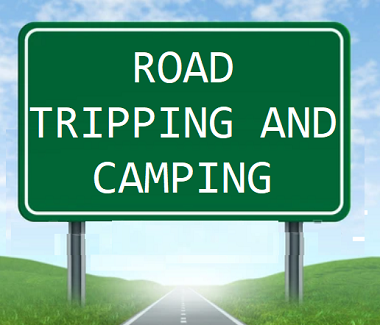How to stay dry camping in rain in a tent
Every tent manufacturer claims their tent is almost completely waterproof - when it is set up properly. The truth is different. There are a very few tents that have a design and materials that can withstand more than a passing light or medium shower, but most WILL leak - count on it. Especially, if the rain is very hard, lasts a long time (hours or more) or both.y
There IS hope!
Here's what you need to know, boiled down to key bullet points;
Even the best tents will eventually leak if the rain is hard enough and/or long enough. But a tent with a larger rain fly, a thicker rain fly, is better. The ones that almost complete cover the tent are better than those that look like the tent is wearing a beanie!
- Get a tent larger than you need. See this page for tent selection. a larger tent that you can stand up in makes everything easier! Most rain comes in because
something on the inside of the tent is touching the tent wall, which allows the water to drain right through. Tents work just like an umbrella. Try touching your umbrella from underneath, during a rain. You will see it allows the water to run down your hand!
- Select a site that is:
- NOT in a depression or low area. An area which is higher than its surroundings is always better. You can pile leaves or pine needles where you will put the tent. 5 or 6 inches, will alow rain to flow out from under the tent. Even if it becomes compacted, it will still be more porous than the ground!
- Has good drainage... if possible. If it's all clay, that may be impossible.
- Has somewhere for a heavy rain to drain away from the tent.
- Dig drainage trenches (they need only be 3 - 6 inches deep and wide, to be sure the runoff from the tent does not pond up under the tent.
I always bring a hand trowel or a small camping shovel for this.
- Stake the tent down so the walls are TIGHT and firm (That helps it shed rain and not leak). Same with the rain fly. Everything must
be tight, taut, not touching anything and secured down.
- Bring a tarp to suspend above the tent or at leave cover the tent if it looks like rain.
There are 2 ways to do this:
1. Suspend a tarp which is LARGER than the tent above the tent.
Tie it to trees or poles (you need at least 2). I tie a stick to the rope and toss it over a high branch. Another method is simply to wrap it around the trunk, high up, using friction to hold it.
Slope the tarp it, with the low end on the downhill side, so the runoff from the tarp empties to the downhill side, and also NOT onto the tent. There must be NO folds or depressions in the tarp.
Ideally, the tarp will be large enough, and the position of the trees such that you can suspend it at 20 - 30 degree angle well above the tent. But this can be hard to do, if the tent is big, or you can't reach high enough into the trees. A compromise as shown in the first photos works. It poured that night, and and we stayed dry. AND... the tent itself was dry to pack up the next moring!
2. If there are no nearby trees, posts or poles - drape the tarp.
If you did not bring any telescoping poles, you will have to use the tarp like a rain fly.
But since a urethane or plastic tarp is completely impervious to rater.
This does mean there cannot be ANY dips or depressions in which water could collect or the whole thing will come down on your tent in a deluge.
As you can see in the second photo, I was able to cover the tent fairly well by draping it over the tent, then tying the corners of the tarp to a tree, a picnic table a post and the ground. It worked well and shre the rain.
- Get a good self-inflating air mattress. See this page. Skip the inflatable ones. They ALWAYS leak sooner or later and leave you on hard
ground. Even if a self- inflating mattress loses air, it will still be comfy because it still has 3 inches of foam!.And here's why it matters
in rain: it keeps you up off the ground!
- Keep your tent's door zipped up at all times except when you are actually going in or out. The tent must be taut to shed rain. .
- Bring large trash bags to store everything - If you keep your gear in trash bags and tie them closed, it has 2 advantages:
- If it rains and the tent leaks, your clothes and other gear will stay dry.Always keep your gear in the bags during the day, too, while you are away, in case there is a downpour.
- If there are really heavy rains and you want to bug out, you need only toss the bags in your car, take the tent down and GO!1.
